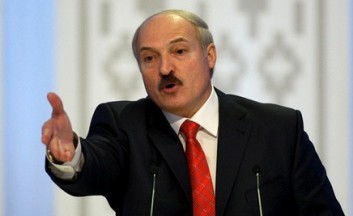Minsk fails to synchronize a dialogue with the EU
 The situation has not changed
The situation has not changed

On March 23, the Belarusian Foreign Ministry regretted the expansion of the EU sanctions against Belarusian officials and companies and stated that the return of the EU ambassadors to Minsk was undesirable.
Comment
On the eve of the EU Foreign Ministers Council’s discussion on sanctions against Belarus (March 22-23), Belarus has used several sources to send “positive signals”. For instance, on March 20, information leaked that “a proposal to Poland to resume a dialogue” was one of the issues on the agenda in a meeting in the Presidential Administration. On the same day the leader of the “Tell the truth!” campaign, Uladzimir Niakliaeu, said in an interview that the authorities were prepared to release some political prisoners. Also, on the same day Minsk City Executive Committee authorized the opposition to hold a rally and a march on March 25 [to celebrate the Freedom Day, the day when Belarusian People’s Republic was announced in 1918]. Finally, twice during the past week the prosecutor’s office stated that it was finalizing examination of the information about the use of torture against ex-candidate Sannikov in prison.
Such frequency of allusions concerning potential resumption of a dialogue indicates there are two generic features attributable to the Belarusian foreign policy. Firstly, surrounding of President Lukashenko sees no benefits from the normalization of political relations with the EU. Secondly, the authorities have no clear-cut strategy of normalization of the relations. Therefore, different departments use exclusively tactical responses within a format of “action – reaction”, or in other words, as Lukashenko says, “we will not bend over as they compel us”. This explains the toughened position of the Foreign Ministry.
These two features make it extremely difficult to assess when Minsk might start fulfilling the conditions set by the EU and will start acting instead of sending signals. The EU conditions are perceived by the Belarusian authorities as pressure, and their fulfillment as an indication of weakness. Therefore, the non-expansion or narrowing of the sanctions by the EU on March 23 would not necessarily result in the release of political prisoners.
The most likely response of the authorities would be, for example, the release of some political prisoners in compliance with the EU demands and simultaneous compensation in a form of repressions against other citizens. That was the practice of the autumn of 2011, i.e. ex-presidential candidate Dmitry Uss was released in October and a human rights defender Bialiatski was sentenced to 4.5 years prison term with confiscation of property in November.
Subscribe to our newsletter




Situation in Belarus
Constitutional referendum: main consequences


 Video
Video
How to count the political prisoners: are the new criteria needed?


 Video
Video
Paternalism In Decline, Belarusian Euroscepticism, And The Influence Of Russia


 Video
Video












